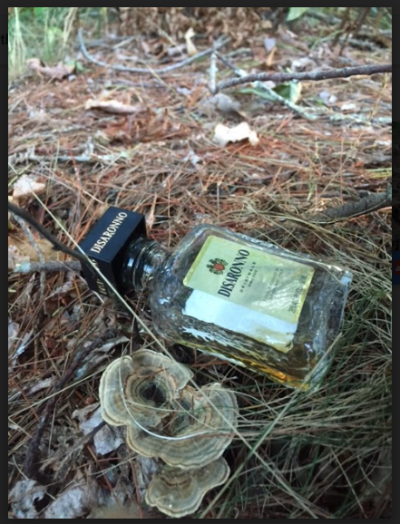Wareham Land Trust volunteers battle 'nips'
Single serving liquor bottles, known as “nips,” are small, but they’ve been creating a big problem at Wareham Land Trust’s Tweedy and Barnes Conservation Area.
Tom Kinsky, the volunteer land steward for the West Wareham property, has collected close to 700 nips there since last December. The glass bottles are found by the dozens in a concentrated area along Blackmore Pond Road, bordering Tweedy and Barnes. The pattern has lead Kinsky to believe that someone is buying a nip every day, drinking it on the road, and chucking the bottle out the window.
Kinsky first noticed the accumulating nips on his bi-annual land steward monitoring trip last December when he collected 300 bottles from the roadside. He’s collected at least 150 bottles on each monitoring trip since then.
“The person is choosing [this area] and thinking just because it’s woods it’s not gonna bother anybody, but it bothers me and it bothers everybody else who walks or jogs or goes by here and sees the trash,” Kinsky said.
Littered nip bottles have become a noticeable problem in Wareham. In 2014, Selectwoman Judith Whiteside asked her fellow board members to explore banning nip sales as a public safety and environmental issue. To support her case at a Board of Selectmen meeting in May of 2014, residents Jim and Mary Bruce brought four large trash bags full of empty bottles they collected from one stretch of road in West Wareham.
The ban would have required a special act of state legislation. That high hurdle prevented any further action and nips continue to litter the roadsides.
Cathy Phinney, a retired nurse and a lifelong Wareham resident said of the bottles, “they’re everywhere, you can’t go out without picking up at least a dozen of them. I find it very discouraging as someone who routinely picks up trash. I don’t know how you change the attitude but that’s what needs to happen.”
Kinsky stops by Tweedy and Barnes every three to four months to clean up the reappearing nips because he said there’s value in keeping natural spaces clean. The Restoration Ecologist for Buzzards Bay Coalition, Sara Quintal, explained that if the nips were left where they are, they would harm plants and other organisms by blocking sunlight and taking up space on the soil’s surface.
As the bottle slowly decomposes, it poses a risk to wildlife. If the bottle breaks, those shards of glass could injure animals who are searching for food in the area. Should an animal ingest a glass shard, it will most likely cause serious health issues or even death, she said.
While chucking trash out the car window may seem like a quick and easy solution, it has a lasting effect on community land and community members.
“The land is there and we’re all benefiting from it with our cleaner water and our calmer lifestyle whether or not we’re on the properties ourselves,” Kinsky said.
The Wareham Land Trust is made up entirely of volunteers just like Kinsky who are passionate about preserving Wareham’s open space and irreplaceable natural resources for the benefit of everyone.
The Wareham Land Trust encourages everyone to dispose of their trash responsibly.
For more information on the Wareham Land Trust or to volunteer, call 508-295-0211 or email info@warehamlandtrust.org.












